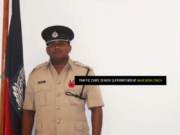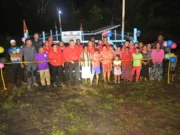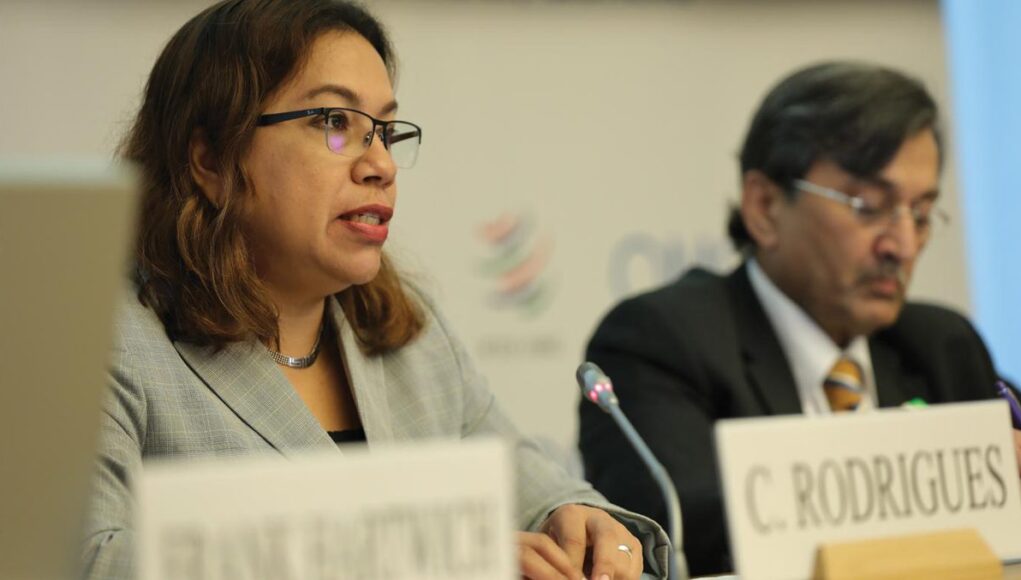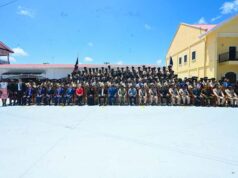Guyana’s presidency of the United Nations Security Council (UNSC) has concluded with notable efficiency and minimal obstacles, underscoring the potential for small states to influence global diplomacy. This position was recently shared by Carolyn Rodrigues-Birkett, Permanent Representative of Guyana to the United Nations.
During an interview with UN Today, she emphasized that Guyana’s leadership did not encounter any significant challenges, crediting a transparent, consultative, and inclusive approach.
“We benefitted from the full cooperation of Council members,” she stated, highlighting the synergy within the council. The primary challenge, if any, she said was managing time effectively amid numerous requests for additional meetings and bilateral discussions. “The challenge for the presidency was to ensure the necessary attentiveness to these requests, which required prioritizing and good time management,” she added.
As the UNSC President, Rodrigues-Birkett’s role extended beyond chairing sessions. She balanced the sensitivity and urgency of various issues while considering the perspectives of concerned countries and council members. This delicate balancing act was crucial, particularly when opinions diverged among council members. “The President must make the final decision,” she noted, underlining the critical nature of this role in fostering consensus.
Rodrigues-Birkett also engaged in extensive consultations with Member States, UN officials, non-governmental organizations, and other stakeholders. These interactions were vital for addressing issues under consideration by the council. She pointed to the situation in Gaza as an instance where Guyana’s presidency facilitated a consultation to highlight the safety and security of UN workers, resulting in a unified statement of concern and support from the council.
In alignment with Note 507 on the Working Methods of the Council, Rodrigues-Birkett said she ensured transparency through informal briefings with the wider UN membership, meetings with civil society organizations, and regular communication with the media. These efforts underscored her commitment to inclusivity and transparency, principles she upheld throughout her tenure.
Reflecting on the broader challenges facing the UNSC, Rodrigues-Birkett addressed the need for comprehensive reforms, particularly regarding the use of the veto. “Due to the fact that the Council has not been able to act in certain high-profile cases due to the use of the veto, the focus on reform has been increased by Member States and civil society as well,” she remarked. As part of CARICOM, Guyana has advocated for either the abolition of the veto or, at the very least, the extension of this privilege to new permanent members, alongside restrictions on its use.
Rodrigues-Birkett’s legacy as an Indigenous woman in international diplomacy adds a unique dimension to her achievements. Her career trajectory, from Minister of Amerindian Affairs to Permanent Representative, exemplifies the transformative potential of inclusive leadership. “Indigenous Peoples should not be seen only as activists and advocates for change; they must also be able to serve at every level, including as policymakers,” she asserted.
Moreover, her pioneering role serves as an inspiration to young women in Guyana and beyond, demonstrating that leadership positions are accessible to all, regardless of gender or ethnic background. “These appointments have served to show every girl in my country, Indigenous or not, what the possibilities are,” she said. Rodrigues-Birkett’s tenure has thus been a beacon of empowerment, particularly for women and Indigenous communities.
Under her leadership, the Guyana team at the UN, composed of 90 percent women, showcased the capabilities of small states in the Security Council. “Now that we have completed two months on the Security Council, including as the President for February, I believe that the Guyana team at the UN (90% women), has demonstrated that small states can, and have the ability to play a meaningful role in the Security Council,” she observed.
Rodrigues-Birkett’s said Guyana’s approach and accomplishments highlight the significant impact that inclusive and consultative governance can have on international diplomacy. Furthermore her work underscores the importance of diverse leadership and the substantial contributions that small states can make on the global stage.













